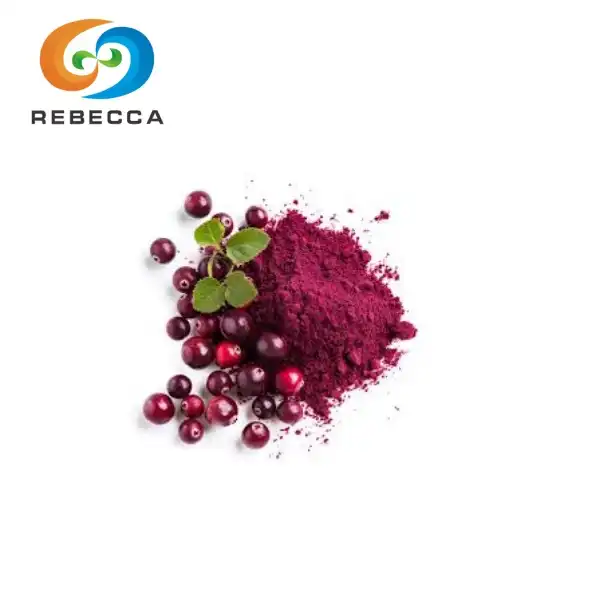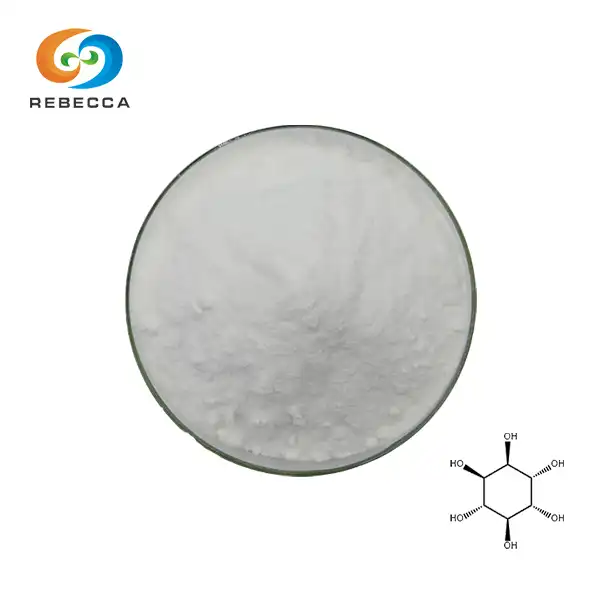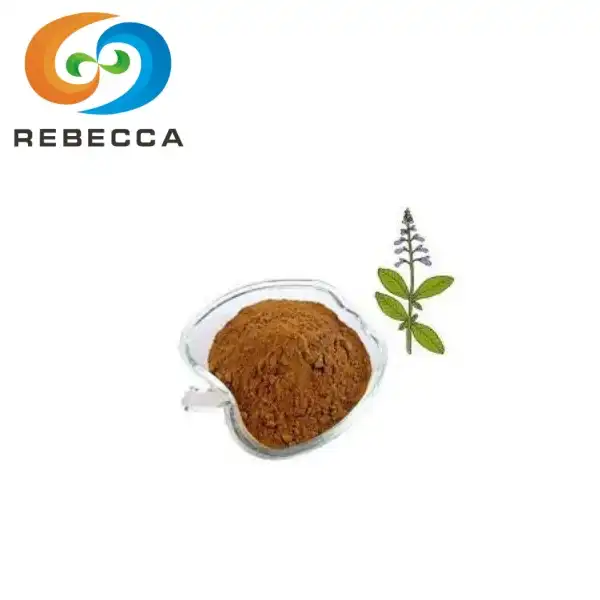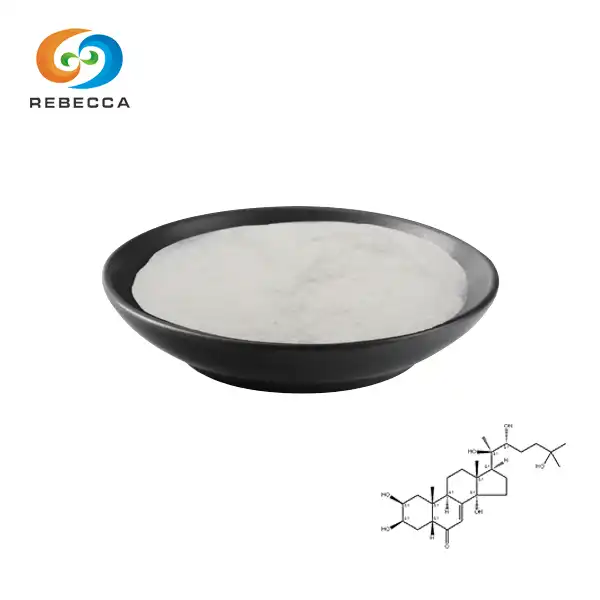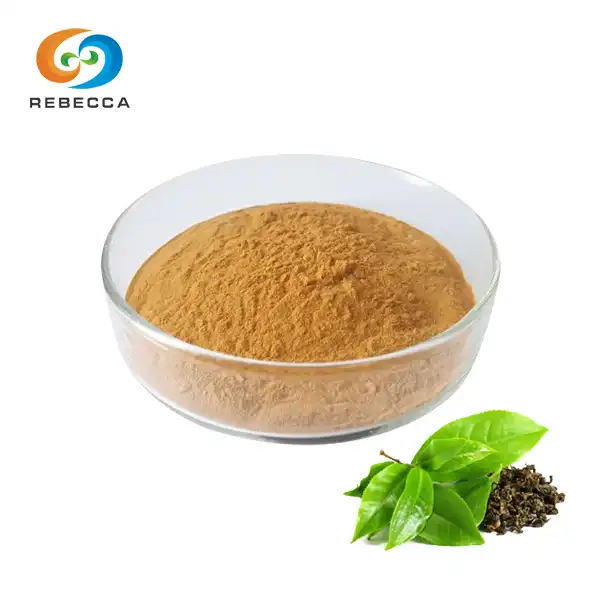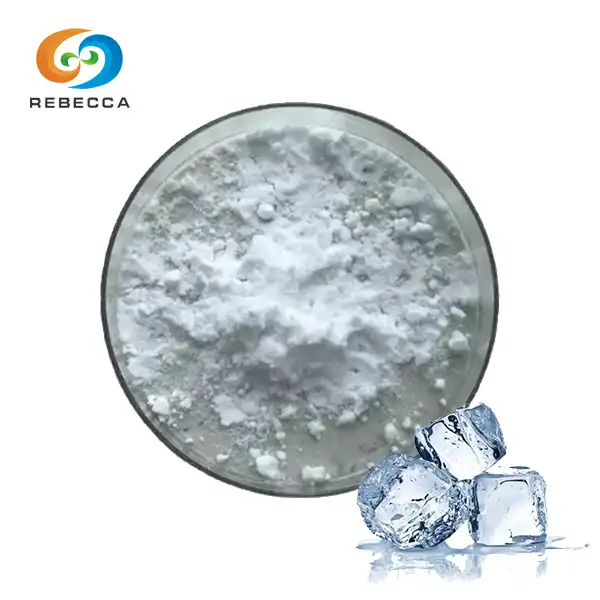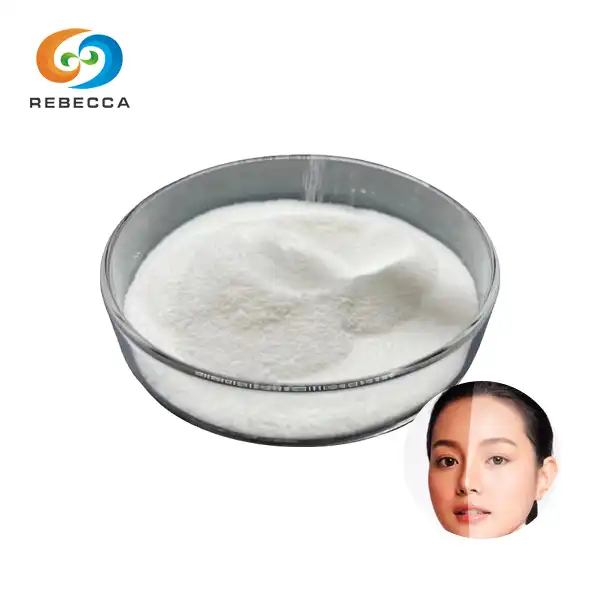Resveratrol Anti-Ageing Benefits: Fad or Fact?
In the ever-evolving world of skincare and anti-aging solutions, resveratrol powder has emerged as a buzzworthy ingredient. This powerful antioxidant, found naturally in grapes, red wine, and certain berries, has captured the attention of both scientists and beauty enthusiasts alike. But is resveratrol truly the fountain of youth it's claimed to be, or just another passing fad? Let's dive deep into the science, comparisons, and expert opinions to uncover the truth about resveratrol's anti-aging benefits.
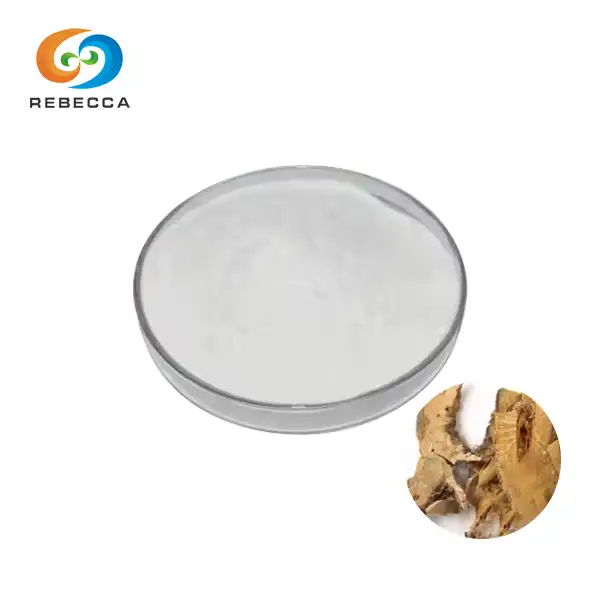
Product Name:Resveratrol(Res)
Chemical formula: C14H12O3
CAS No.:501-36-0
Specifications :Resveratrol ,Min 50%, Min 98%,HPLC
Appearance: White to light yellow powder, odorless
Solubility: Hardly soluble in water, but easily soluble in organic solvents such as ether, methanol, acetone, ethyl acetate, etc
Efficacy: Anti-oxidation, anti-inflammatory, cardiovascular protection, anti-cancer, immunity enhancement. Resveratrol also has multiple biological activities such as antibacterial, anti-asthma, anti-obesity, nerve protection, and anti-aging
Scientific Evidence: Resveratrol's Cellular Impact
Resveratrol, a polyphenolic compound with the chemical formula C14H12O3, has been the subject of numerous scientific studies exploring its potential anti-aging effects. Its molecular structure allows it to interact with various cellular components, potentially influencing the aging process at a fundamental level.
Activating Longevity Genes
One of the most intriguing aspects of resveratrol is its ability to activate certain genes associated with longevity. Research has shown that resveratrol can stimulate the production of sirtuins, a group of proteins that play a crucial role in regulating cellular health and lifespan. By activating these "longevity genes," resveratrol may help cells maintain their youthful function and resist the effects of aging.
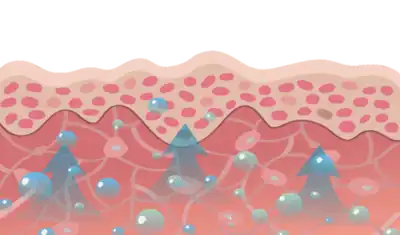
Antioxidant Properties
Resveratrol's potent antioxidant properties are well-documented. As a fine white to off-white powder with a purity of 98% (as tested by HPLC), resveratrol powder can effectively neutralize harmful free radicals in the body. These free radicals are known to cause oxidative stress, which contributes to premature aging of the skin and other tissues. By scavenging these damaging molecules, resveratrol helps protect cells from oxidative damage, potentially slowing down the aging process.

Mitochondrial Function
Mitochondria, often referred to as the powerhouses of cells, play a crucial role in energy production and cellular health. As we age, mitochondrial function tends to decline, leading to reduced energy levels and increased cellular aging. Studies have suggested that resveratrol may enhance mitochondrial function, potentially improving cellular energy production and slowing the aging process at a cellular level.
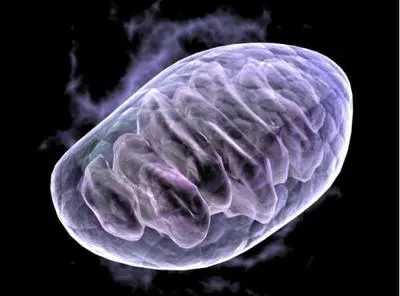
Comparing Resveratrol to Other Anti-Aging Ingredients
While resveratrol has garnered significant attention, it's essential to understand how it stacks up against other popular anti-aging ingredients. This comparison can help put resveratrol's benefits into perspective and determine its place in the anti-aging landscape.
Resveratrol vs. Retinoids
Retinoids, derived from Vitamin A, are widely recognized as potent anti-aging ingredients. They work by increasing cell turnover and stimulating collagen production. While retinoids have a strong track record in reducing fine lines and wrinkles, they can sometimes cause skin irritation. Resveratrol, on the other hand, offers antioxidant protection without the potential for irritation, making it suitable for sensitive skin types. However, its effects on skin renewal may not be as dramatic as those of retinoids.
Resveratrol vs. Vitamin C
Vitamin C is another powerful antioxidant known for its skin-brightening and collagen-boosting properties. While both resveratrol powder and Vitamin C offer antioxidant protection, they work through different mechanisms. Resveratrol's unique ability to activate longevity genes sets it apart from Vitamin C. However, Vitamin C may have a more noticeable effect on skin brightness and overall tone.
Resveratrol vs. Peptides
Peptides are short chains of amino acids that can signal the skin to produce more collagen. They're often touted for their ability to reduce the appearance of fine lines and wrinkles. While peptides focus primarily on collagen production, resveratrol offers a broader range of benefits, including antioxidant protection and potential cellular longevity effects. The two ingredients could potentially complement each other in a comprehensive anti-aging skincare routine.
Expert Opinions: Dermatologists Weigh on Resveratrol
To gain a more comprehensive understanding of resveratrol's potential as an anti-aging ingredient, it's crucial to consider the opinions of skincare experts. Dermatologists, with their in-depth knowledge of skin biology and extensive clinical experience, offer valuable insights into the efficacy and practical applications of resveratrol in anti-aging skincare.
Promising but Not a Miracle Cure
Many dermatologists agree that resveratrol shows promise as an anti-aging ingredient. Dr. Lisa Airan, a renowned dermatologist in New York City, states, "Resveratrol's antioxidant properties make it a valuable addition to any anti-aging skincare routine. However, it's important to remember that no single ingredient is a miracle cure for aging. A holistic approach to skincare and overall health is always recommended."
Complementary Ingredient
Dr. Dendy Engelman, a board-certified dermatologic surgeon, emphasizes the potential of resveratrol as part of a comprehensive skincare regimen. "Resveratrol works well in conjunction with other antioxidants and anti-aging ingredients. Its unique properties can complement and enhance the effects of other active ingredients, potentially leading to better overall results."
Long-Term Benefits
Some experts highlight the potential long-term benefits of resveratrol use. Dr. Nicholas Perricone, a dermatologist and nutrition expert, explains, "While some anti-aging ingredients offer immediate, surface-level results, resveratrol powder's effects may be more subtle and cumulative over time. Its ability to protect cells from oxidative stress and potentially influence cellular longevity could lead to long-lasting anti-aging benefits."
Concentration and Formulation Matters
Dermatologists also stress the importance of proper concentration and formulation when it comes to resveratrol products. Dr. Patricia Wexler, a New York-based dermatologist, notes, "The efficacy of resveratrol depends greatly on its concentration and how it's formulated. Look for products that use a stable form of resveratrol and combine it with other complementary ingredients for optimal results."
Conclusion
While resveratrol powder may not be the miracle anti-aging solution some have claimed, its scientifically-backed benefits make it a valuable addition to any anti-aging skincare routine. Its unique properties, including antioxidant protection and potential cellular longevity effects, set it apart from other anti-aging ingredients. However, as with any skincare ingredient, individual results may vary, and it's always best to consult with a dermatologist or skincare professional to determine the best approach for your specific needs.
For those interested in exploring high-quality resveratrol products, Shaanxi Rebecca Biotechnology Co., Ltd. offers the best resveratrol powder derived from natural plant extracts. With a focus on quality and purity, their resveratrol powder undergoes rigorous testing and is produced using advanced, eco-friendly methods. For more information about their resveratrol products and other natural herbal extracts, please contact them at information@sxrebecca.com.
References
1. Baur, J. A., & Sinclair, D. A. (2006). Therapeutic potential of resveratrol: the in vivo evidence. Nature Reviews Drug Discovery, 5(6), 493-506.
2. Walle, T. (2011). Bioavailability of resveratrol. Annals of the New York Academy of Sciences, 1215(1), 9-15.
3. Tran, D., Townsley, N., Barnes, T. M., & Greive, K. A. (2015). An antiaging skin care system containing alpha hydroxy acids and vitamins improves the biomechanical parameters of facial skin. Clinical, Cosmetic and Investigational Dermatology, 8, 9.
4. Ratz-Łyko, A., & Arct, J. (2019). Resveratrol as an active ingredient for cosmetic and dermatological applications: a review. Journal of Cosmetic and Laser Therapy, 21(2), 84-90.
5. Markus, M., & Morris, B. J. (2008). Resveratrol in prevention and treatment of common clinical conditions of aging. Clinical Interventions in Aging, 3(2), 331.
_1730691017423.webp)




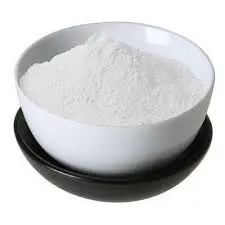
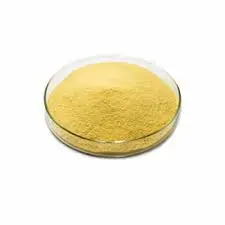






_1735529080429.webp)
